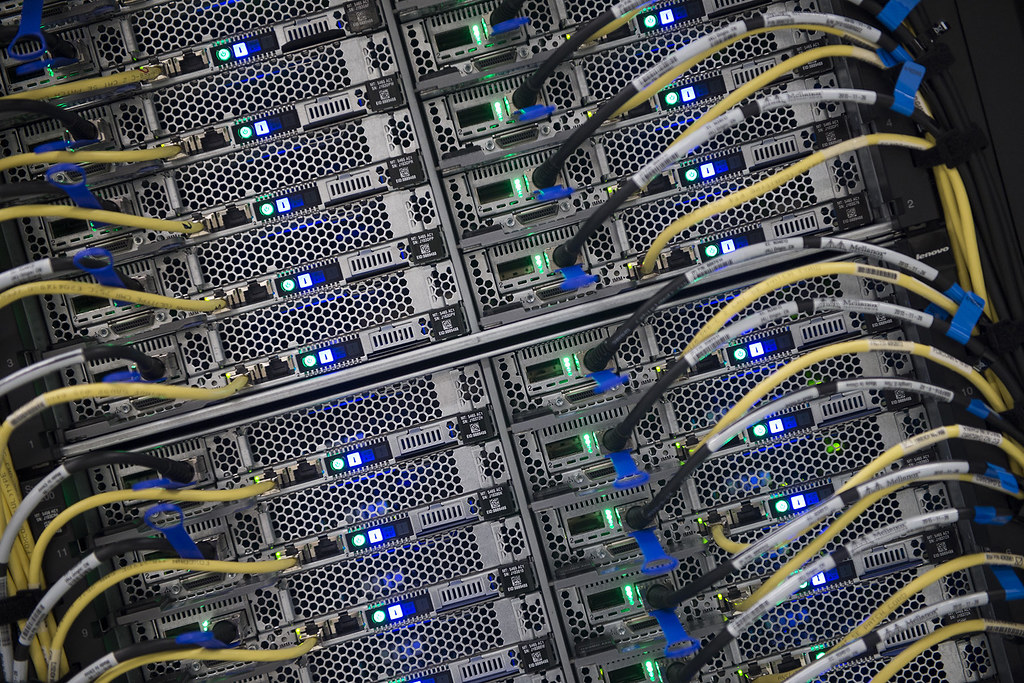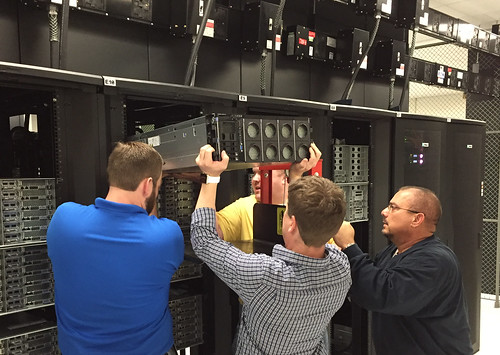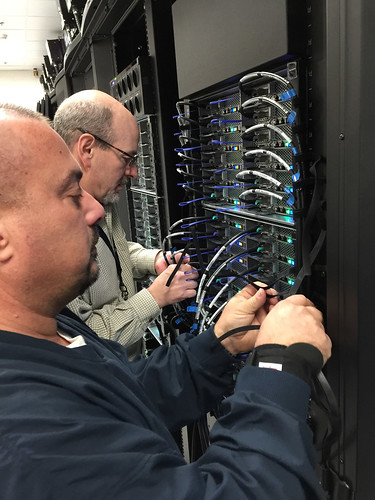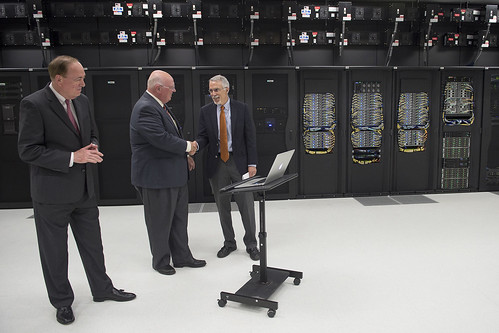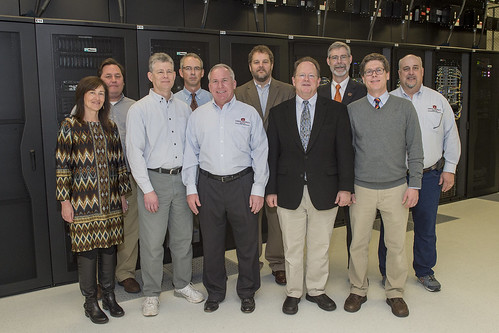COSAM News Articles 2016 February Auburn University unveils $1 million supercomputer, initiates new technology acquisition plan
Auburn University unveils $1 million supercomputer, initiates new technology acquisition plan
Published: 02/11/2016
By: Charles Martin
Auburn University unveiled a new $1 million supercomputer that will enhance research across campus, from microscopic gene sequencing to huge engineering tasks. The university is also initiating a plan to purchase a new one every few years as research needs evolve and expand. The College of Sciences and Mathematics’ Dean Nicholas Giordano, along with Bliss Bailey, chief information officer in the Office of Information Technology, led the effort to bring the new supercomputer to the university.
"Computer technology plays such an important role in all research today," said Giordano. "Many Auburn faculty and students will benefit from it, and it will help Auburn recruit new faculty, who can hit the ground running."
The Lenovo supercomputer is actually a collection of 120 computers called "nodes" tied together into a coherent system controlled by a "head node," with its speed ranking in the top 1 percent in the world in terms of access to the large pool of shared storage. Each node has 20 cores that process information, which means 2,400 cores are available for the computational needs of researchers.
"Many of our research projects require terabytes of data," said John Liu, Auburn University associate provost and associate vice president for research. "This supercomputer offers Auburn researchers unprecedented computer power. The higher level of capability and capacity allows us to be very competitive in the era of Big Data as we analyze large amounts of information."
The system has more than 16 terabytes of memory and 1.4 petabytes of disk space. One terabyte equals one million megabytes (or 1,000 gigabytes), while one petabyte is 1,000 terabytes. A typical personal computer has 8 gigabytes of memory and disk space that is between 500 gigabytes and 1 terabyte.
Auburn named its new supercomputer the "Hopper" in honor of the late Rear Admiral Grace Hopper, an extraordinary woman whose work laid the foundation for much of today's computing work.
Each researcher can have his or her own resources on the machine, which is housed in the Office of Information Technology building.
"We designed our building to accommodate this type of setup when we built it four years ago," said Bailey. "Researchers will still use their desktop computers to access our 'Hopper' supercomputer."
The university will be able to better utilize research funding since researchers will not have to buy individual hardware and software for individual projects, and colleges will not have to build space with advanced electrical and cooling systems. Researchers will also be able to avoid renting computer space and time on supercomputers within outside agencies or companies.
"The new supercomputer will allow our researchers to do all of their work here and to spend more of their funding on the actual research," Liu said. "The machine will provide more opportunities for graduate and undergraduate students as well. Our students need to be trained with state-of-the-art infrastructure."
The university installed a supercomputer in its Hubbard Center for Advanced Science, Innovation and Commerce, or CASIC, building three years ago. Computer technology is estimated to become obsolete every six years, so Auburn plans to replace one of its supercomputers every few years.
"The new supercomputer is four times faster," Bailey said. "We want to have multiple machines available for researchers, with incorporating the latest technology."
Funding was provided by a variety of sources, including the National Science Foundation, Auburn's Office of the Vice President for Research and Economic Development, Office of Information Technology, the Office of the Provost, College of Sciences and Mathematics and Samuel Ginn College of Engineering.
"We had a great collaboration across campus units to implement this plan," Liu said. "I appreciate Nick [Giordano] and Bliss [Bailey] for leading this effort."
More stories that may interest you
-
COSAM announces 2025 Academic Awards recipients: 3 from DMS
02/12/2025
-
DMS will host the Southeast Applied and Computational Math Student Workshop on April 5 - 6, 2025.
02/11/2025
-
DMS assistant professor Dr. Paul Zhang awarded the NSF CAREER Award
02/10/2025
-
DMS Applied Algebraic Geometry Conference to be held on April 19 and 20, 2025.
01/30/2025
-
DMS graduate students selected for awards this year for their hard work and excellence
12/03/2024
Latest Headlines
-
02/12/2025
-
02/11/2025
-
02/10/2025
-
01/30/2025
-
12/03/2024

